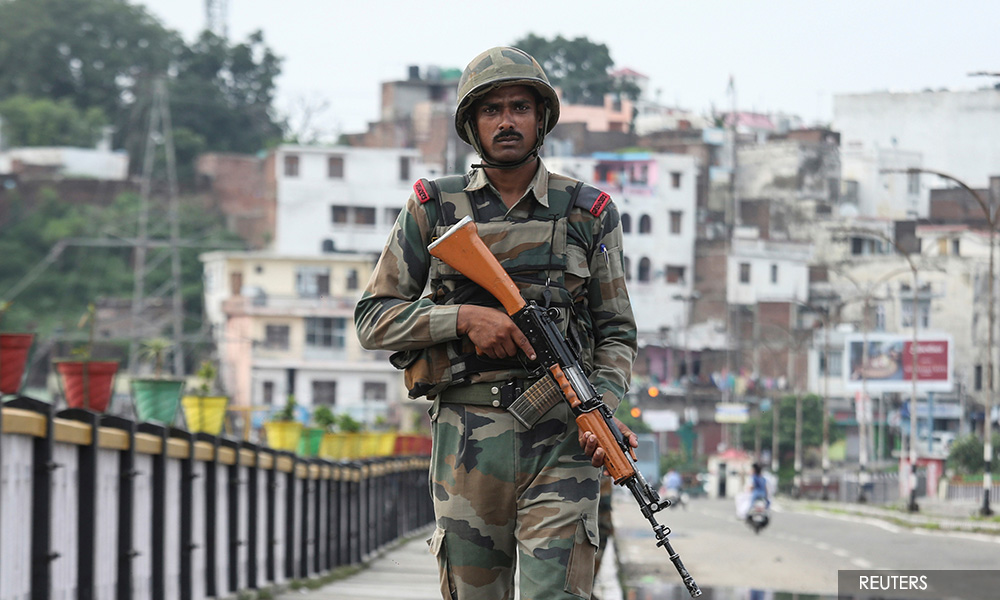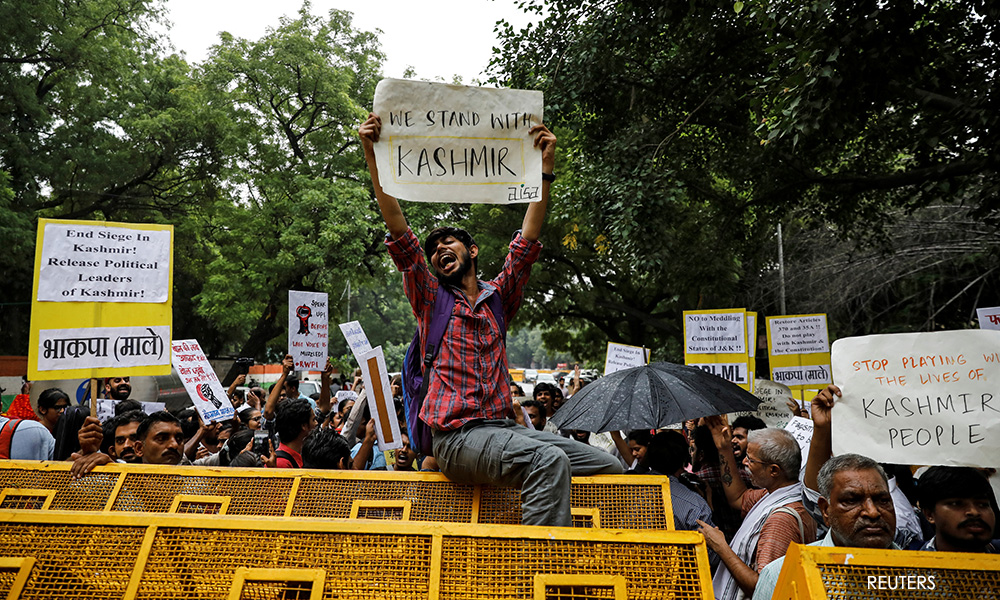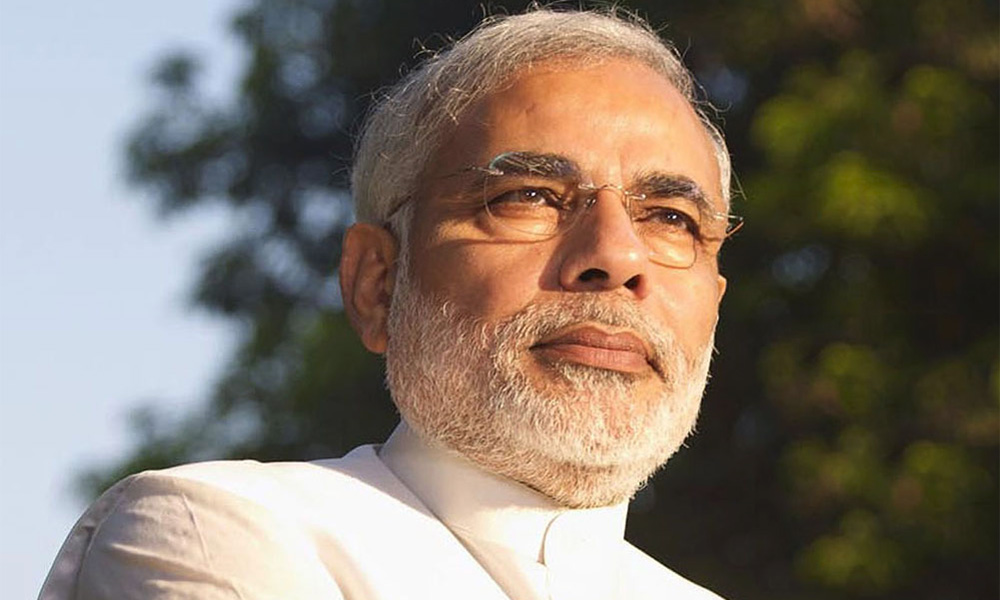Pakistan said on Tuesday it would take its dispute with India over Kashmir to the International Court of Justice, after New Delhi revoked the special status of its part of the region earlier this month.
Islamabad reacted with fury to that decision, cutting trade and transport links and expelling India’s ambassador.
“We have decided to take the Kashmir case to the International Court of Justice,” Pakistan Foreign Minister Shah Mehmood Qureshi told ARY News TV on Tuesday. “The decision was taken after considering all legal aspects.”
The case would centre on alleged human rights violations by India in Muslim-majority Kashmir, which both countries claim in full, but rule in part, Qureshi said.
A spokesperson for India’s Foreign Ministry did not immediately respond to a request for comment. India denies committing human rights violations in Kashmir.
A senior US State Department official said it was up to Pakistan to decide whether it wanted to take the matter to the court, but added: “Our view is that a resolution in Kashmir is not aided by multilateralising it. The answer is direct conversation between India and Pakistan.”
India further eased movement restrictions in Kashmir’s main city Srinagar, even as large swathes of the historically-restive old quarter remained locked down to curb protests over New Delhi’s move to strip the region of its autonomy.

Small groups of armed soldiers, many kitted out in full riot gear, were positioned every few metres in the old quarter, and all stores, other than a handful of pharmacies, were closed. Even in areas where restrictions have been eased, most shops remained closed.
In Soura, a densely populated enclave in Srinagar that has been a hotbed of protests since Aug 5, when Prime Minister Narendra Modi withdrew the special rights granted to Jammu and Kashmir, locals have built a series of makeshift barricades to keep security forces out.
Many of these have been cobbled together with felled light poles or trees, reinforced with barbed wire and wooden planks, where locals said they were keeping watch every night.
“Article 370 and 35A are our rights, and we will keep fighting till we get them back,” an announcer at the area’s main mosque said following afternoon prayers, referring to the constitutional provisions withdrawn by the Modi government.
After prayers, a local religious leader, who declined to be named, told Reuters that there would be no compromise.
“Even if they pave our roads with gold, we will not relent,” he said.
“What do we want?” he asked the few dozen people surrounding him. “Azadi,” they shouted back, using the Urdu word for freedom, which has long been used as a rallying cry.
Local officials said on Tuesday security forces had detained 30 people overnight in Srinagar, in a bid to control protests.

Crowds have demonstrated frequently in the city despite a severe clamp-down on phone and internet services, and a ban on public gatherings and the detention of hundreds of political leaders and separatists who have campaigned for secession from India.
Youths have pelted stones at paramilitary police deployed in Srinagar, and the latest detentions took place in parts of the city where such incidents have occurred, a police officer said.
“These arrests have been made in the areas where there has been intensifying stone-pelting in the last few days,” the officer said, speaking on condition of anonymity because of the sensitivity of the situation.
A local government official confirmed the latest detentions.
Tensions intensify
The withdrawal of the special privileges of Muslim-majority Kashmir means residents of all parts of India can buy property and compete for government jobs and college places, raising fears that it will be flooded with outsiders.
Indian Prime Minister Narendra Modi’s (photo) surprise move has also increased tensions with arch-rival Pakistan which lays claim to Kashmir and has accused India of human rights violations in the territory at the heart of more than 70 years of hostility between them.

US President Donald Trump spoke to Modi and Pakistan Prime Minister Imran Khan on Monday urging them to reduce tensions over Kashmir. “A tough situation, but good conversations!” Trump said in a Twitter post after the calls.
Pakistan said on Tuesday it plans to take its dispute with India over Kashmir to the International Court of Justice.
Barriers surrounding the famous clock tower in the Lal Chowk area of central Srinagar – once the epicentre of protests – were removed for the first time since Aug 5, but adjoining commercial establishments kept their shutters down.
Attendance in nearly 200 primary schools, which reopened on Monday, had “considerably improved”, government spokesperson Rohit Kansal told a news briefing, but he did not provide any data on how many students showed up.
Reuters visited nine schools across Srinagar on Tuesday, none of which had any students in attendance.
Kansal said after receiving feedback from parents, officials will reopen some middle-schools in the Kashmir valley on Wednesday.
Mobile and internet connections in the Kashmir valley remained snapped for 16th straight day, and many landline telephones that were restored over the weekend are also not properly working.
“We will try to restore 100 percent landline connectivity,” Kansal said at the briefing, without providing a timeline.
Kansal also declined to disclose how many people had been detained by authorities since restrictions were imposed on Aug 5.
- Reuters

